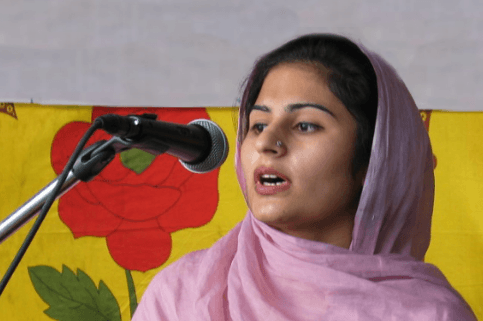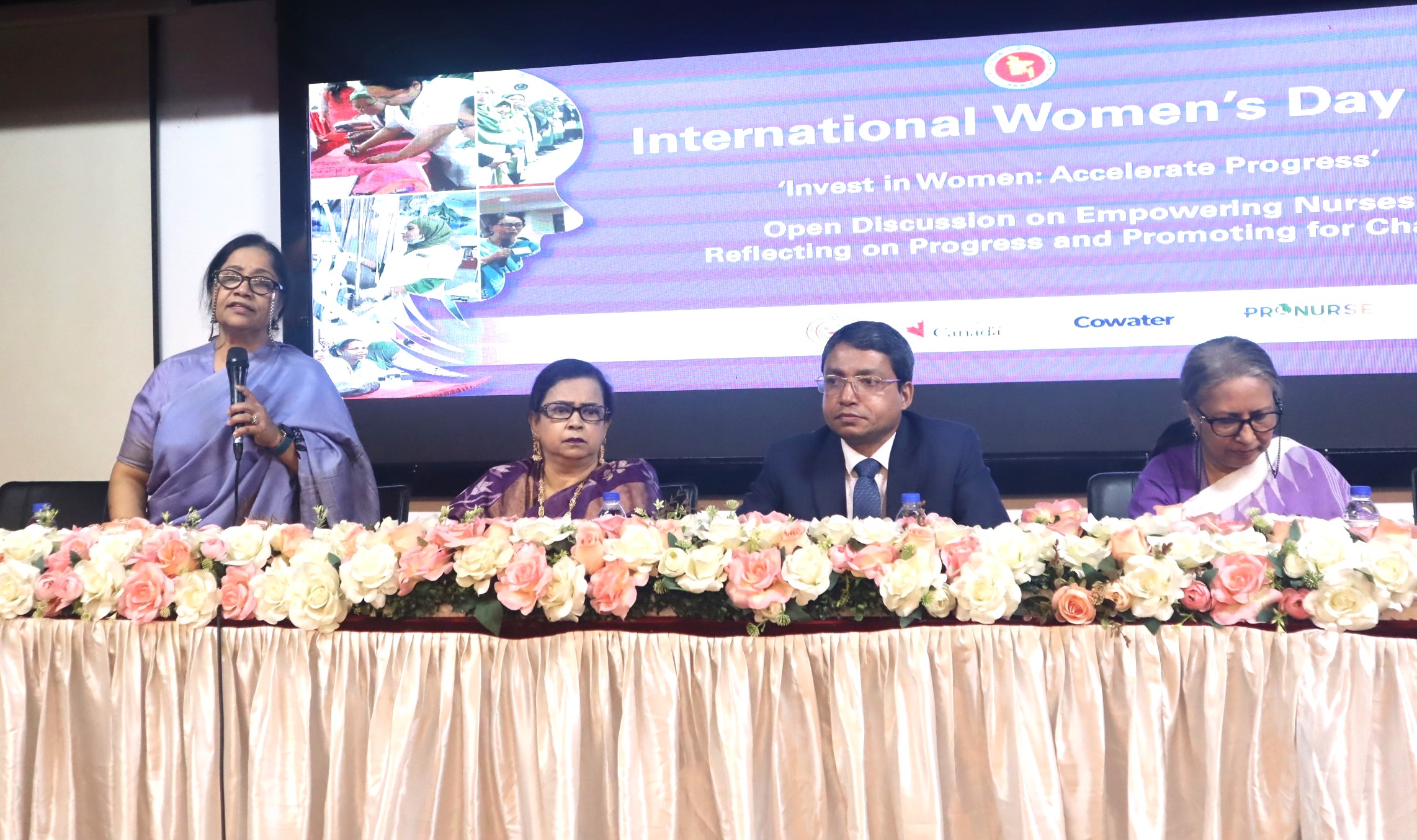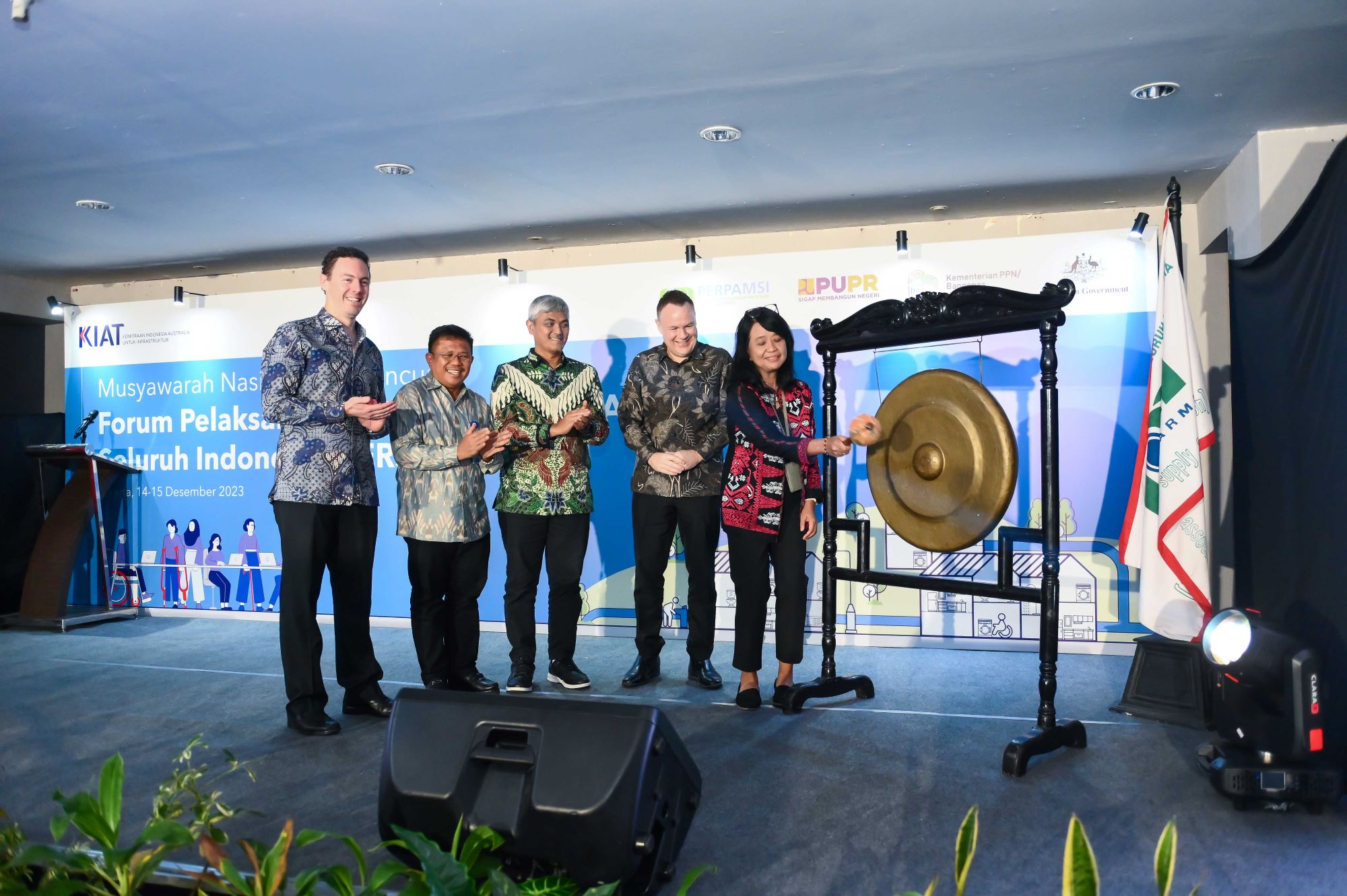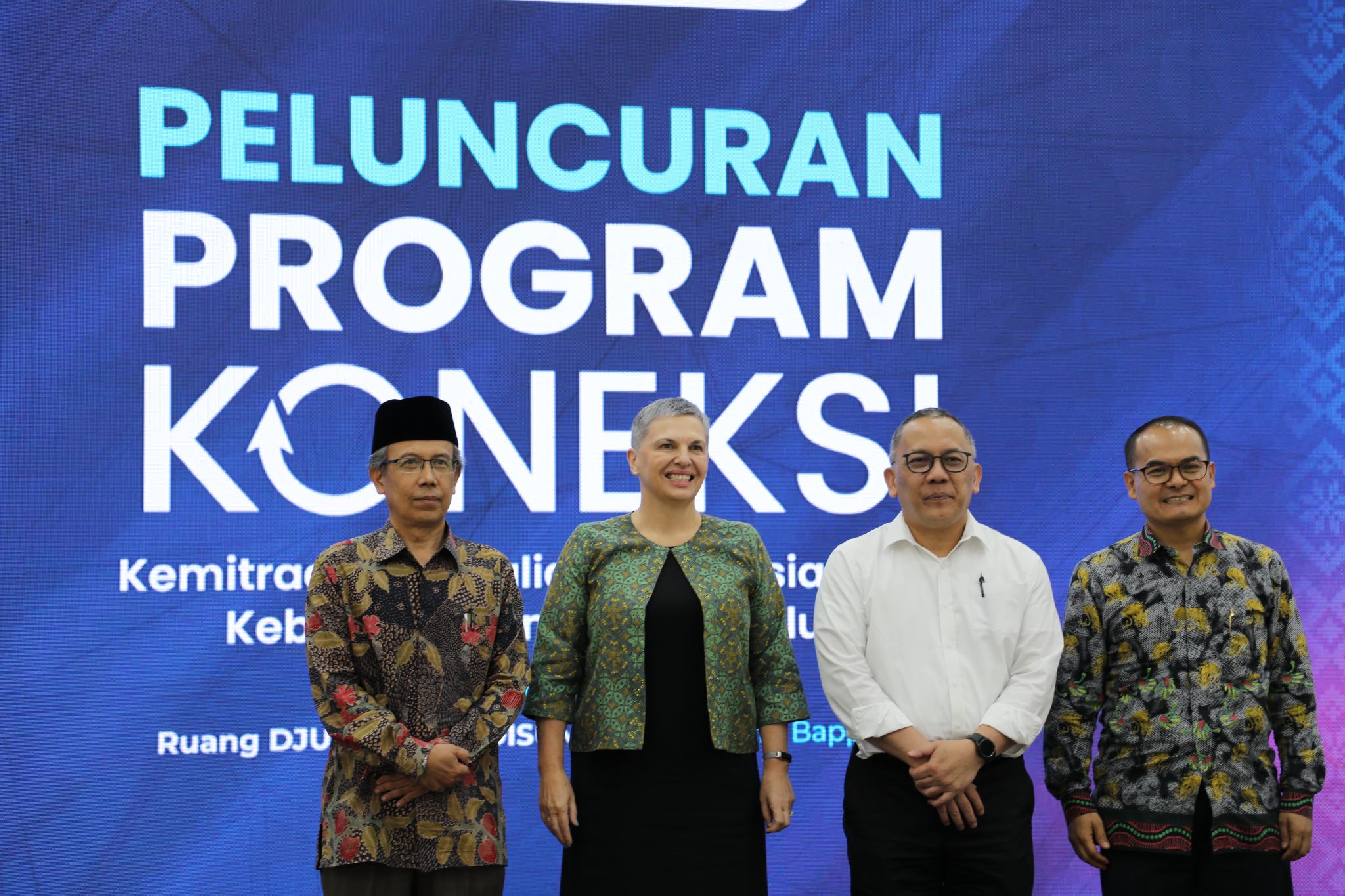
Voice, Movements, and Politics: Mobilizing Women’s Power
There is strong consensus today, within the global development sector, that projects need to consider and respond directly to the unique needs of, and barriers faced by women. Donors, NGOs, governments, and communities have rallied around the need to achieve gender equality and promote women’s empowerment. Indeed, the Sustainable Development Goal (SDG) 5 represents a standalone gender goal and a powerful frame through which women’s priorities can be championed and realized.
As we celebrate International Woman’s Day, and as part of an ongoing effort to reflect on our role within the development space and learn from our experiences, we share lessons learned through our projects and programs on how we can be better allies to women and support the mobilization of their inherent power. Building on the ongoing public discourse on this topic; research and results from development practice including projects that we have implemented; and most importantly, what we have heard from the women and girls we serve, we identify three key elements that have proven vital in achieving sustainable gender equality.
Voice
As a development organization, we have learned that our role is to listen and not impose. We seek to dismantle the patriarchal notions that women need to be “helped” or “given a voice”, and the harmful colonial-era power dynamics that these notions reinforce. Women have voice. What we have learned through our projects is the need for enabling spaces and structures that actively counter the barriers that women face when using their voice.
This means ensuring that women are at the center of projects, not as tokens but as decision-makers in the planning and delivery of interventions. This means that projects are carefully designed and take contextually relevant measures to provide safe spaces where women can speak freely and feel heard.
From 1999 to 2016, Cowater implemented the Citizen Engagement for Social Service Delivery Project (CESSD) project across 11 districts in the province of Khyber Pakhtunkhwa in Pakistan, funded by the Canadian and Australian Governments. The project was designed to strengthen citizen engagement with the Government of Khyber Pakhtunkhwa and improve the enabling environment for the delivery of essential social services such as healthcare, elementary education, and access to drinking water. Given the deeply socially conservative communities in which the initiative operated, women faced many challenges in participating in the project. Such challenges included shouldering the burden of care and household responsibilities; restrictions on their mobility; the risk of backlash against participating in the project and wider democratic processes; and the low levels of literacy and education among women. Despite this, towards the end of the project, 93% of women on the Water Utility Committees, which were government-mandated community-based groups established to support and oversee the management of water supply schemes, felt that their views were integrated into crucial Committee decisions. The project was able to elevate women’s participation and voice at every step through intentional planning that took into consideration the daily struggles they faced.
This included taking time early in the project to develop genuine relationships with stakeholders, including local decision-makers and authority figures. By strategically engaging religious leaders, women’s extended families and community elders, who have the power to drive or hinder change, the project was able to build broad support for greater women’s participation. To ensure that women from different backgrounds were able to participate, the project overcame a range of barriers by hosting women-only meetings that were held at socially-acceptable and accessible locations at times suitable to their schedules.
An important lesson gained through this project is that, to be truly inclusive of women’s voices, the reality of women’s lives needs to be well understood. To achieve this, projects need to meet women where they are and in places where they can speak freely and be heard. This way, we stand a better a chance of hearing directly from women their wants, hopes and aspirations.
Movements for Change
We have seen time and again what can be achieved when women from all walks of life unite around a common purpose and the collective power that arises from this solidarity. At its core, the grassroots-level organizing and mobilizing carried out by women across the world aims to fundamentally shift oppressive institutions and dismantle patriarchal structures. While aid financing plays an important role in supporting women’s organizations on the frontlines of such movements, enduring success is seen when other forms of support are prioritized in tandem, such as organizational development and learning, relationship and networks building, and strengthening policy advocacy.
Cowater in cooperation with the Government of Indonesia is currently implementing the MAMPU Program, funded by the Australian Government’s Department of Foreign Affairs and Trade (DFAT). MAMPU supports the development of networks and inclusive coalitions of women’s and gender-interested organizations as well as parliamentarians to positively shape government policies, regulations and services so that poor women have greater access to the services and supports they need. MAMPU works with over 14 national NGOs and over 100 local civil society organization across 27 provinces and 936 villages in Indonesia.
On 19 April 2018, women leaders from various MAMPU Partner organizations were invited to meet with Indonesia’s President Jokowi to discuss key priorities of the women’s movement. The women were there to advocate for the elimination of child marriage through the passing of a Presidential Regulation in Lieu of a National Law (also known as Perppu), the passage of the draft Law on the Elimination of Sexual Violence and delaying the ratification of the revised draft Criminal Code.
By the end of the meeting between MAMPU Partners and President Jokowi, the President had committed to signing the Perpputhat would increase the minimum legal age to marry. The meeting was the result of years of persistent and strategic engagement by MAMPU Partners with the Office of the President. Through the tireless advocacy of MAMPU Partners, the Program has been linked to over 80 decisions by policymakers, between October 2017 to March 2018, ranging from a new National Law on Migrant Workers to increased village budget allocations, and gender-responsive district strategic plans.
As a grant-making organization, we are aware that a crucial part of our role involves recognizing the power, capacity, and dynamism that such women’s organizations and networks wield. We understand that our way of providing technical assistance, administering grants and assessing impact should help, not hinder the work of these organizations.
Political Power
Across the plethora of interventions that fall under the banner of women’s empowerment, the power of women’s political participation, representation, and activism is sometimes overlooked. This oversight risks further marginalizing and excluding women from the power centers of society. Herein lies the importance of distinguishing between interventions that offer marginal improvements to the circumstances of women and those efforts that support women in breaking down the structures that uphold their marginalization.
We have learned that if we are to be part of the transformational change we seek, our projects must support the political mobilization of women. Business development and information services for women to grow their own enterprises are important in the fight against poverty. Similarly, increasing awareness on good nutrition and proper hygiene is necessary in improving health outcomes of families. However, without addressing the political dimensions of poverty and health, the root causes of these issues will persist. Promoting women’s political mobilization, participation and representation around issues that affect not only them but society, will drive the changes essential to addressing today’s intractable development issues.
Desired changes at the political, policy, and legislative level require the systematic inclusion of all women’s voices in these processes. It is important to not only create enabling spaces that promote the voices of women, but to ensure that these voices are represented at the highest echelons of political power. As more women from diverse backgrounds enter the political realm, true representation of the diverse realities of women becomes possible, offering genuine hope for social reform.
Inclusion also means women are provided with the tools, resources and preparation that is required for them to succeed in their new roles. Although Indonesia’s gender quota requires political parties to have at least 30% of women on their candidates list, this has yet to produce significant increases to women’s electability. One of the underlying factors is the limited political training that female candidates have access to, which poses significant challenges in running against male incumbents. In response, the MAMPU Program providespolitical, leadership, and media training for parliamentarians and women’s parliamentary caucuses to promote gender reforms in parliament. In addition, the Program supportswomen parliamentarians in engaging with their constituents to better understand the underlying causes of, and advocate for, the issues that affect poor communities and women.
On International Women’s Day, what we celebrate above all is the agency of women and the collective recognition that women having the space to tell their own stories, standing together to push past oppressive structures, and asserting their political rights and power, are critical if we are to achieve sustainable gender equality.
****
Cowater enables transformative action on gender equality and social inclusion. As a global leader in international development consulting, we provide gender equality expertise at the project, program and policy level. We work with government, partners organizations, communities and civil society to design and implement sustainable gender-responsive solutions to generate lasting social, economic and environmental impacts. We believe in supporting the empowerment of women and girls, challenging social norms and harmful practices while creating environments that are inclusive of marginalized women, men, girls and boys.
Related Content
ProNurse Project celebrates International Women’s Day 2024
This year’s International Women’s Day theme was “Invest in Women: Accelerate Progress”. To celebrate and raise awareness of the role of women in the nursing sector of Bangladesh, ProNurse Project […]
Integration of Gender Equality and Social Inclusion in Water Utilities in Indonesia
Since mid-2020, Australia has supported the Performance Based Grants (PBG) scheme for water utilities in Indonesia through the Indonesia Australia Partnership for Infrastructure (KIAT). On 15 December 2023, Cowater International, […]
KONEKSI: Indonesia-Australia Partnership for Inclusive Policy and Innovation
Deputy for Human, Community and Cultural Development of the Ministry of National Development Planning/Head of National Development Planning, Amich Alhumami; Chairman of National Research and Innovation Agency, Laksana Tri Handoko; […]







